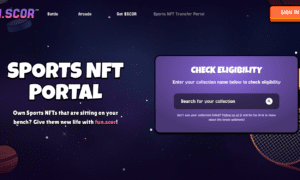The global phenomenon of Daily Fantasy Sports (DFS) continues its meteoric rise, captivating millions of sports enthusiasts with its unique blend of strategic skill, real-time action, and immediate gratification. For operators aiming to gain global recognition, the allure of expanding into new geographical markets is undeniable, promising exponential growth and a broader player base. However, this expansion is far from a simple launch; it’s a complicated network of legal, cultural, and operational considerations.
Sustainable market conquest for DFS operators hinges on a meticulously planned, responsible expansion strategy that prioritizes stringent compliance, deep localization, and unwavering commitment to player well-being. It’s about transforming potential legal “grey areas” into clear “green lights” for ethical and profitable growth.
Understanding the Landscape: The “Skill vs. Chance” Crossroads
At the heart of DFS legality worldwide lies a fundamental distinction: is it a game predominantly of skill or a game of chance? Jurisdictions globally apply this test to determine whether DFS falls under traditional gambling laws or qualifies for more favorable regulatory treatment.
- Game of Skill: Where the outcome is primarily determined by a participant’s knowledge, strategic decisions, and judgment (e.g., player selection, lineup optimization, statistical analysis). Most legal frameworks that permit DFS classify it this way.
- Game of Chance: Where the outcome is predominantly based on randomness or luck (e.g., traditional slots or roulette). These are typically subject to stricter gambling regulations, often requiring full gaming license.
Pillars of Responsible Expansion: Beyond Legal Compliance
Conquering the new Daily Fantasy Sports markets responsibly demands more than just checking a legal box. It requires a holistic commitment to player protection and operational integrity.
- Robust Regulatory Adherence:
- Jurisdiction-Specific Licensing & Permits: There is no universal DFS license. Operators must meticulously research and acquire the precise permits required for each target market, often involving distinct applications, fees, and ongoing reporting.
- Stringent KYC/AML (Know Your Customer/Anti-Money Laundering): Implementing robust identity verification and transaction monitoring systems is non-negotiable. These systems must comply with local and international financial regulations to prevent fraud, underage participation, and illicit financial activities.
- Data Privacy & Security: Adhering to diverse data protection laws, such as Europe’s GDPR or India’s DPDP Act, is critical. Protecting sensitive player data through advanced encryption and secure infrastructure builds trust and avoids severe penalties.
- Proactive Responsible Gaming (RG):
- Ethical Imperative: Even for skill-based games, promoting responsible play is crucial. It protects vulnerable players, builds a positive industry reputation, and is increasingly a prerequisite for regulatory approval.
- Integrated Tools: Leading platforms offer a suite of responsible gaming features directly within their apps and websites:
- Deposit and Loss Limits: Allowing players to set self-imposed financial boundaries for daily, weekly, or monthly play.
- Time Limits & Reality Checks: Enabling players to control their session duration and providing prompts about time spent.
- Self-Exclusion & Time-Outs: Options for players to temporarily or permanently block access to their accounts.
- Access to Support: Providing clear links and information for problem gambling helplines and resources.
- Behavioral Analytics: Leveraging technology to identify early warning signs of problematic play patterns, enabling proactive outreach and support.
- Deep Localization & Cultural Sensitivity:
- Language & Content Adaptation: Beyond mere translation, this involves adapting the platform’s language, marketing messages, and even contest descriptions to local colloquialisms and cultural norms.
- Preferred Sports & Formats: Tailoring the offering to the sports most popular in the region (e.g., cricket’s immense popularity in India, or specific regional sports in the US). Understanding and offering the favored contest types (e.g., head-to-head, GPPs, multipliers) is key.
- Local Payment Methods: Integrating widely used and trusted local payment gateways (like UPI in India, regional e-wallets, or specific bank transfer systems) is crucial for a frictionless deposit and withdrawal experience.
- Culturally Aligned Marketing: Developing marketing campaigns that resonate with the local audience while adhering to regional advertising regulations and cultural sensitivities.
Strategic Market Entry: The “How-To” for Sustainable Growth
Translating responsible principles into actionable market entry involves a strategic roadmap:
- Thorough Market Research: Beyond legalities, deep dives into local player demographics, competitive landscape, internet penetration, and mobile usage patterns are essential to identify underserved niches.
- Phased Rollouts & Pilot Programs: Instead of a “big bang” launch, operators should consider starting with smaller, targeted launches in highly compliant and receptive regions to test the market, gather feedback, and refine their approach before broader expansion.
- Strategic Local Partnerships: Collaborating with local legal counsel, financial institutions, payment providers, marketing agencies, and even local sports bodies can provide invaluable insights and facilitate smoother entry.
- Leveraging Technology for Adaptability: The underlying platform must be inherently flexible. A modular architecture allows operators to quickly configure new regulatory requirements, integrate local features, and scale efficiently without needing to rebuild the entire system for each new market. This technological agility is a competitive advantage.
At KodeDice, the iGaming experts understand that conquering new DFS markets isn’t just about presence; it’s about building trust and fostering sustainable growth. Our iGaming platform is engineered with regulatory adaptability at its core, enabling rapid configuration to different legal frameworks and supporting the implementation of robust, jurisdiction-specific KYC/AML and Responsible Gaming tools.
Our modular architecture facilitates deep localization, ensuring operators can seamlessly integrate preferred local payment methods, adapt to popular sports and contest formats, and deliver culturally relevant user experiences. Coupled with our scalable backend and real-time data processing capabilities, KodeDice provides operators with a comprehensive technological blueprint that not only ensures compliance but also drives high-performance and responsible growth in the dynamic world of Daily Fantasy Sports.
Conclusion: Growth with Integrity
The global expansion of Daily Fantasy Sports is an exciting frontier. However, true success in these new territories will not be achieved by sheer force of entry, but by an unwavering commitment to integrity and responsibility. Operators who proactively embrace the complexities of regulatory compliance, champion player safety through robust responsible gaming features, and demonstrate genuine cultural understanding through deep localization will be the ones to build lasting trust and unlock the full potential of new DFS markets. By turning potential grey areas into clear green lights, they chart a course for a thriving, ethical, and globally connected future for Daily Fantasy Sports.



































